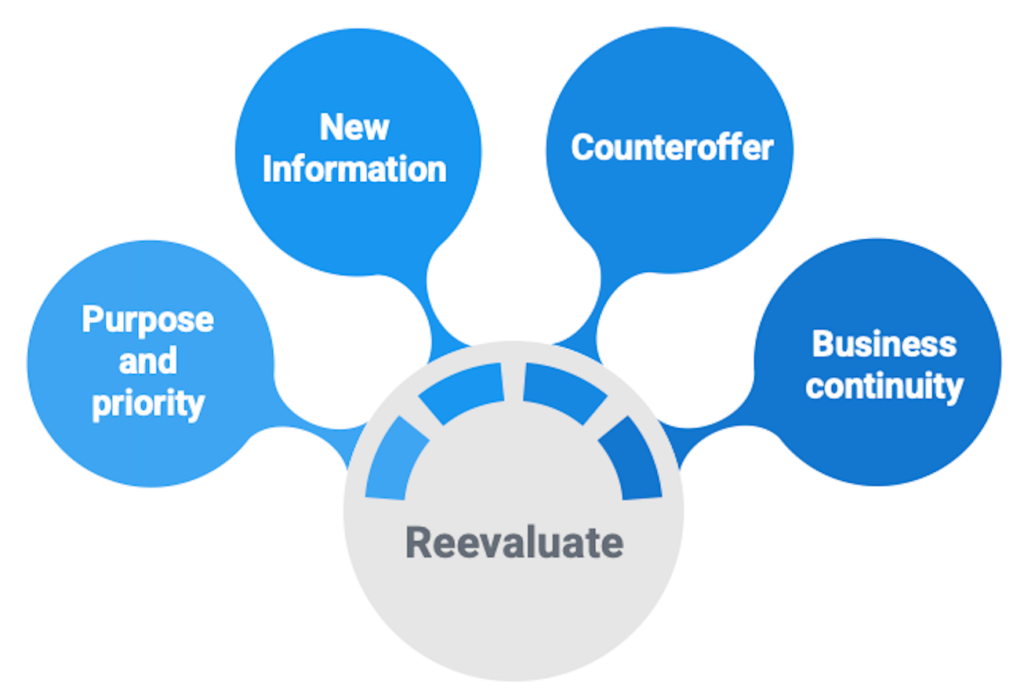It’s important to remember that the “Do” step in PDCA recommends conducting small-scale tests before proceeding. The “Check” step involves analyzing the results or re-evaluating the situation. Depending on the scope of the negotiations, this re-evaluation may occur during a break or a caucus if working with a team. If the negotiations are more complex and involve multiple sessions, the “Check” phase will occur between negotiation events. Regardless of the size of the negotiations, buyers are advised to review their progress before moving on to the final step of “Action”.
Considerations in this “Check” phase include:
1. Please review if the purpose and priority of the negotiations are still intact.
2. It is important to document and study any new information regarding a product, service, company, or industry that may affect negotiations in order to reach a mutual agreement.
3. Please carefully analyze any counteroffers that are presented or may be presented to you and determine an appropriate response. Counteroffers may be as simple as changing the payment terms, so it’s important to review them carefully.
4. Both organizations should be mindful of potential threats that may have been identified during the SWOT analysis. To minimize legal risks, business continuity is usually addressed in standard terms and conditions. However, depending on the complexity and timeline of the agreement, it may be beneficial to discuss from a business perspective as well. If a potential supplier poses a high risk, it could impact the decision to proceed with negotiations.
Business Continuity Planning – Plans to ensure an organization is capable of continuing to deliver products or services at acceptable predefined levels following a disruptive incident. The plans are developed by identifying potential threats to an organization and the impacts to business operations they might cause. These plans provide a framework for building resilience with the capability of an effective response to safeguard the interest of stakeholders, reputation, brand, and value-creating activities.


